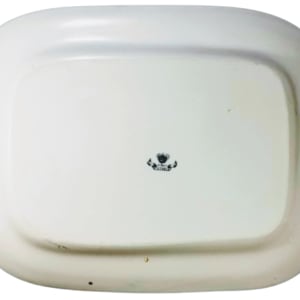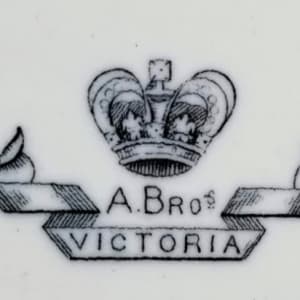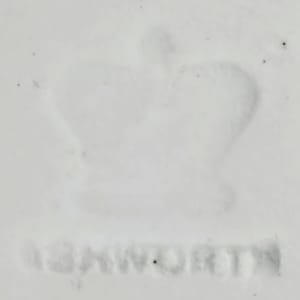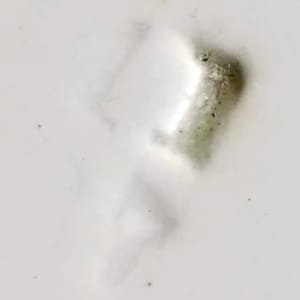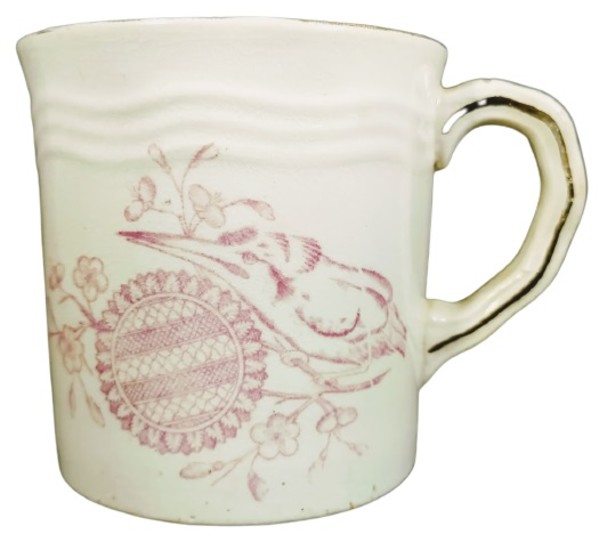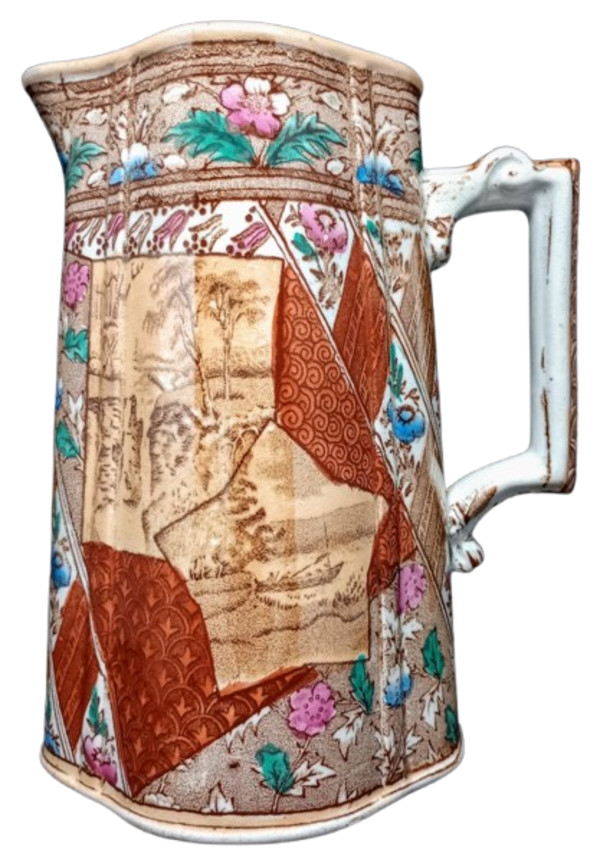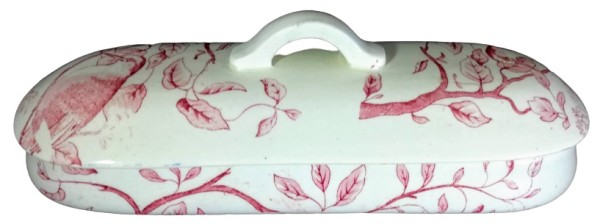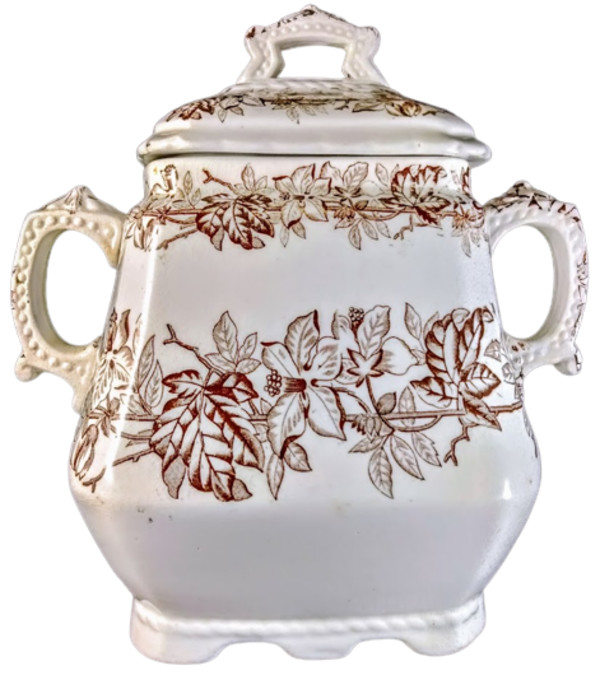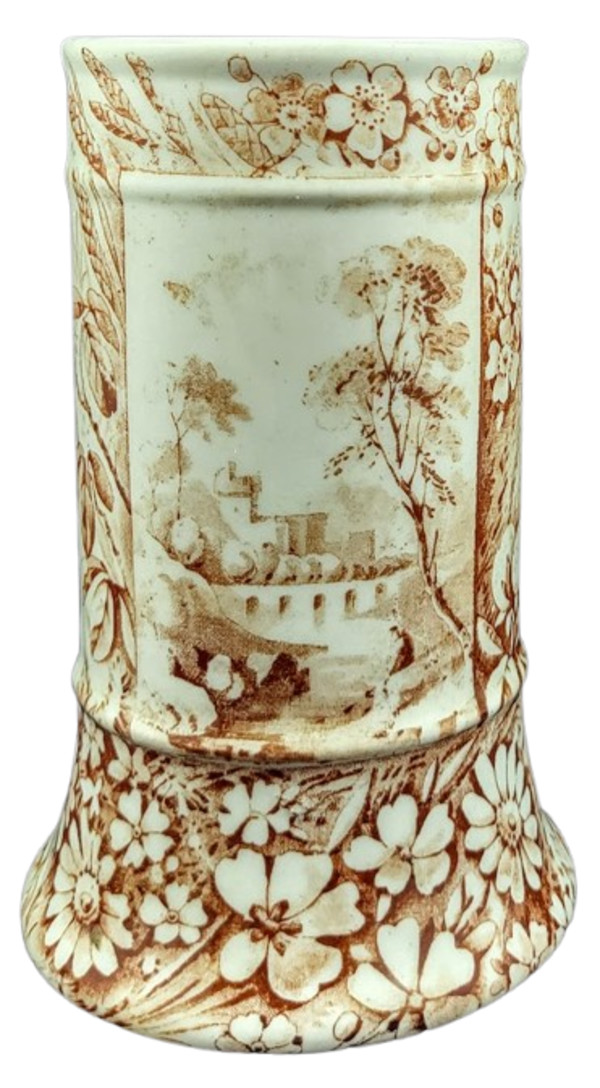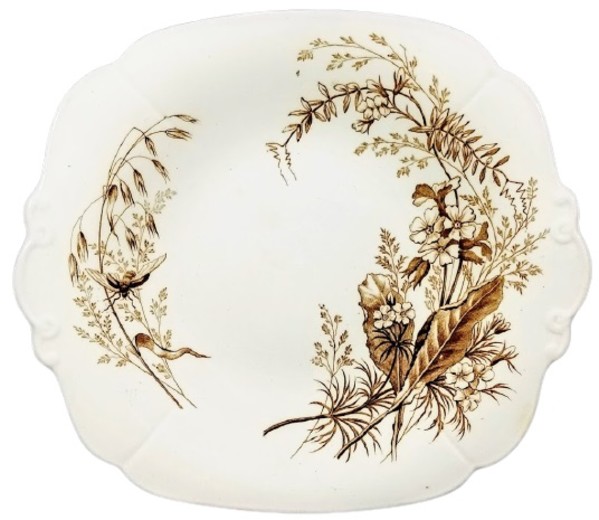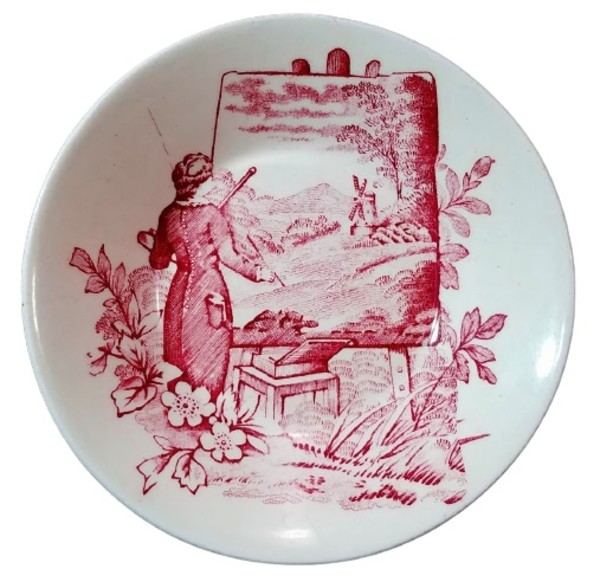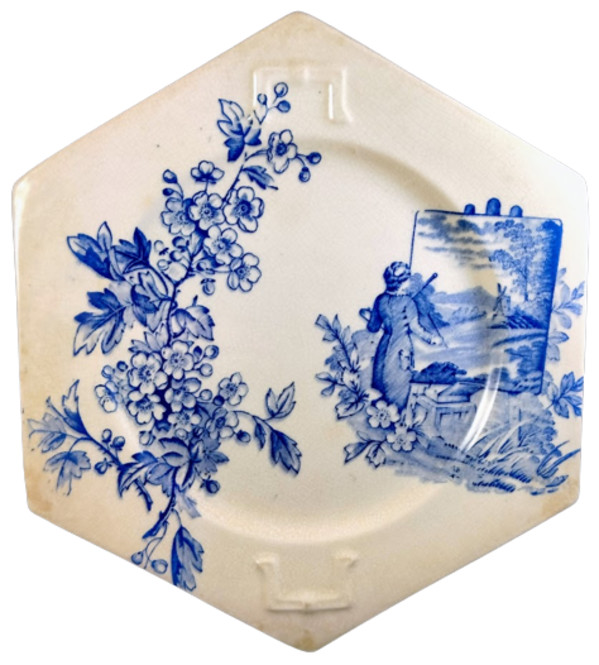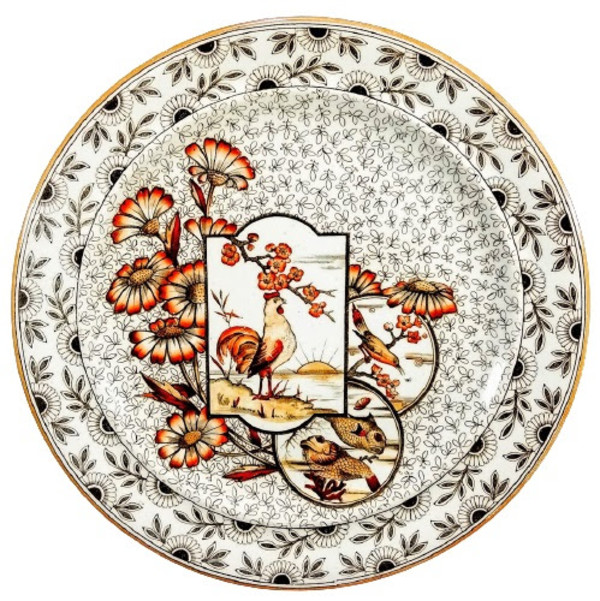- G. L. Ashworth & Bros.
- Victoria, c. 1860-1890
- Earthenware
- 15.5 x 12 in (39.37 x 30.48 cm)
-
Not For Sale
Platter, 15.5 x 12 inches. Black transfer with polychrome clobbering. Printed and impressed maker's marks for G. L. Ashworth & Bros. The impressed manufacture date code is illegible. The pattern features various grasses, leaves, and small flowers curving around the right side border, with a bee nestling in more grasses and ferns on the left.
The Broad Street Works are interesting as being the place where the celebrated “Mason's Patent Ironstone China,” as well as the “Ironstone China” of the old firm of Hicks, Meigh, and Johnson were made. Charles James Mason, the inventor of this famous “Mason's Ironstone China,” was a potter of great skill at Lane Delph, and in 1813 took out a patent for his process. The manufacture was carried on under the styles of “G. M. & C. J. Mason” and “C. J. Mason & Co.;” the partners being Charles James Mason and his brother George Miles Mason. After a time, G. M. Mason withdrew from the concern, which was then continued by the patentee alone. For want of capital and other causes, however, it gradually dwindled down, and in 1851 Mr. Francis Morley purchased the entire business from Mr. Mason. Mr. Morley, who was a partner in the firm of Morley, Wear, & Co., succeeded to the old-established concern of Hicks, Meigh, & Johnson, which he carried on for a time under the style of Ridgway & Co., and afterwards as F. Morley & Co. Mr. Morley retired in 1859, having sold the entire business to George L . and Taylor Ashworth (brothers), who continued the manufacture of the “Patent Ironstone China,” which they and their predecessor named the “Real Ironstone China” on their marks, and produced all Mason's best patterns in services, vases, etc., made from his original models. They also manufacture Meigh's ironstone, from his old molds, etc. This manufacture was very largely developed by Mr. Taylor Ashworth, to whom the art was indebted for many improvements. Messrs. Ashworth, besides these features of their trade, made table, toilet, dessert, and other services, and ornamental goods of the best quality, in every description of general earthenware; and sanitary goods were also produced, as well as insulators for the home and for foreign markets.
- Subject Matter: Aesthetic (Nature)
- Collections: Aesthetic Transferware, G. L. Ashworth & Bros.

